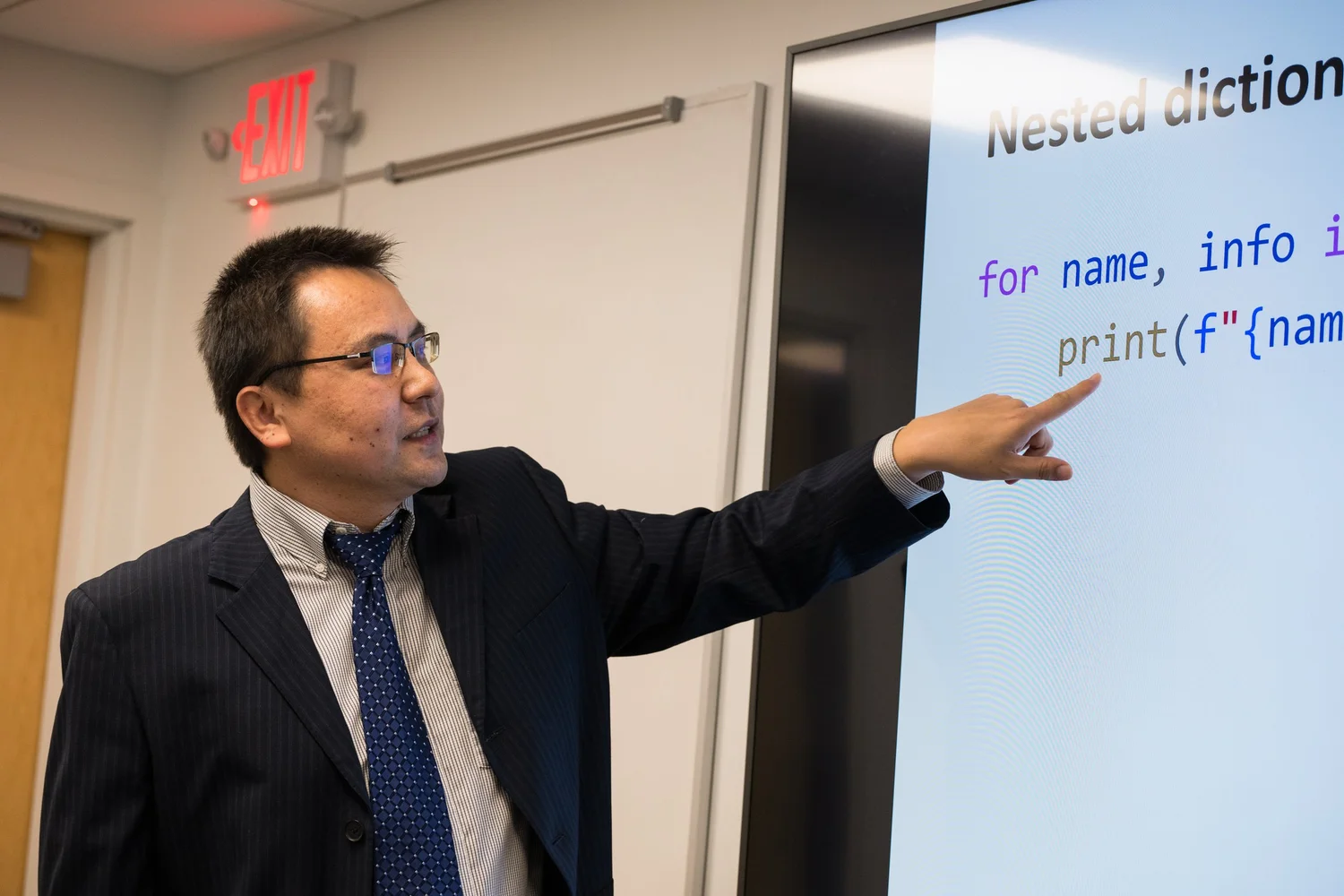Imagine a future where artificial intelligence not only powers our technology but does so with a conscience. At Fairfield University, this vision is becoming a reality thanks to a groundbreaking initiative led by Dr. Sidike Paheding. With a generous grant of nearly $400,000, this project is set to revolutionize how we integrate ethical considerations into AI education.
Empowering Students with Ethical AI Knowledge
In today's rapidly evolving technological landscape, understanding AI's ethical implications is more crucial than ever. Dr. Paheding's project aims to weave these ethical considerations seamlessly into AI curricula, ensuring that students are not only tech-savvy but also ethically aware. This initiative empowers learners to become responsible innovators who can navigate the complexities of AI with integrity.
Building Responsible AI Systems
Beyond education, the project also focuses on developing AI systems that prioritize ethical standards. By fostering a culture of responsibility, Fairfield University is setting a new benchmark for how AI should be developed and deployed. This approach ensures that the AI systems of tomorrow are designed with a deep understanding of their potential impact on society.
"Our goal is to create a generation of AI professionals who are not only technically proficient but also ethically grounded," said Dr. Sidike Paheding. "This project is about shaping the future of AI education and development with responsibility at its core."
A Collaborative Effort for a Better Future
This initiative is more than just a project; it's a collaborative effort that brings together educators, students, and industry leaders. By working hand-in-hand, they are crafting a future where AI serves humanity in the most ethical way possible. This collaboration is a testament to the power of education in driving meaningful change.
As we look to the future, Fairfield University's commitment to ethical AI education stands as a beacon of hope. With projects like these, we are not only preparing students for the jobs of tomorrow but also ensuring that they are equipped to make a positive impact on the world.
Originally published at https://www.edtechinnovationhub.com/news/fairfield-university-awarded-three-year-grant-to-lead-ai-ethics-in-education-collaborative-research-project
ResearchWize Editorial Insight
In a bustling high school classroom, imagine a teacher introducing a lesson on artificial intelligence. The students, curious and eager, are not just learning about algorithms and data processing. Instead, they are delving into discussions about the ethical dimensions of AI—how these technologies can impact privacy, bias, and decision-making in society. This is where the article about Fairfield University's initiative becomes profoundly relevant.
ResearchWize Analysis:
The article on Fairfield University's pioneering efforts in AI ethics education is a significant touchpoint for both students and researchers. For students, it highlights the importance of integrating ethical considerations into their understanding of technology. In a world where AI is increasingly pervasive, this approach ensures that future innovators are not only skilled but also conscious of the societal implications of their work. This is crucial in classrooms where educators strive to prepare students for real-world challenges, fostering a mindset that balances technical expertise with moral responsibility.
For researchers, the initiative represents a fertile ground for exploring how ethical frameworks can be systematically embedded into technical curricula. It invites inquiry into the effectiveness of such educational models and their impact on student outcomes. The collaborative nature of the project, involving educators, students, and industry leaders, also offers a rich tapestry for research on interdisciplinary approaches to education.
In essence, the article underscores a transformative shift in how we educate about AI—one that prioritizes ethical literacy alongside technical proficiency. This is a call to action for educators to weave these principles into their teaching practices, ensuring that the next generation is equipped not just to innovate, but to do so with a conscience.
Looking Ahead
AI education will thrive when it becomes a shared journey. Students will engage in project-based learning, working in teams to tackle real-world challenges. They will learn not only from textbooks but from each other, sharing insights and developing solutions together. This collaborative model will foster a sense of community, where every student feels valued and empowered to contribute.
Inclusion will be at the heart of this educational landscape. Just as a garden thrives with a variety of plants, classrooms will embrace diversity, ensuring that every student, regardless of background or ability, has access to learning opportunities. Teachers will facilitate this inclusive environment by tailoring their approaches to meet the needs of all learners, using AI tools to personalize learning experiences and provide support where needed.
The emotional side of schooling will be nurtured alongside academic growth. Educators will prioritize emotional intelligence, teaching students to understand and manage their emotions, empathize with others, and build strong interpersonal skills. This focus on emotional well-being will create a supportive atmosphere where students feel safe to express themselves and take risks in their learning.
As AI education evolves, it will also emphasize ethical considerations, much like tending to the soil to ensure a healthy garden. Students will explore the moral implications of AI technologies, learning to develop systems that are not only innovative but also responsible. This ethical grounding will prepare them to become conscientious creators who are mindful of the impact their work has on society.
In this vision for the future, AI education will be a dynamic, inclusive, and emotionally supportive environment. By nurturing collaboration, inclusion, and ethics, we will cultivate a generation of learners who are not only skilled in AI but also equipped to use their knowledge for the greater good.
Originally reported by https://www.edtechinnovationhub.com/news/fairfield-university-awarded-three-year-grant-to-lead-ai-ethics-in-education-collaborative-research-project.
Related Articles
- Bringing Science to Life with Artificial Intelligence
- Wrtn Technologies integrates LG’s Exaone for AI education
- Google Commits $1 Billion to Expand AI Education Across US Universities
📌 Take the Next Step with ResearchWize
Want to supercharge your studying with AI? Install the ResearchWize browser extension today and unlock powerful tools for summaries, citations, and research organization.
Not sure yet? Learn more about how ResearchWize helps students succeed.

